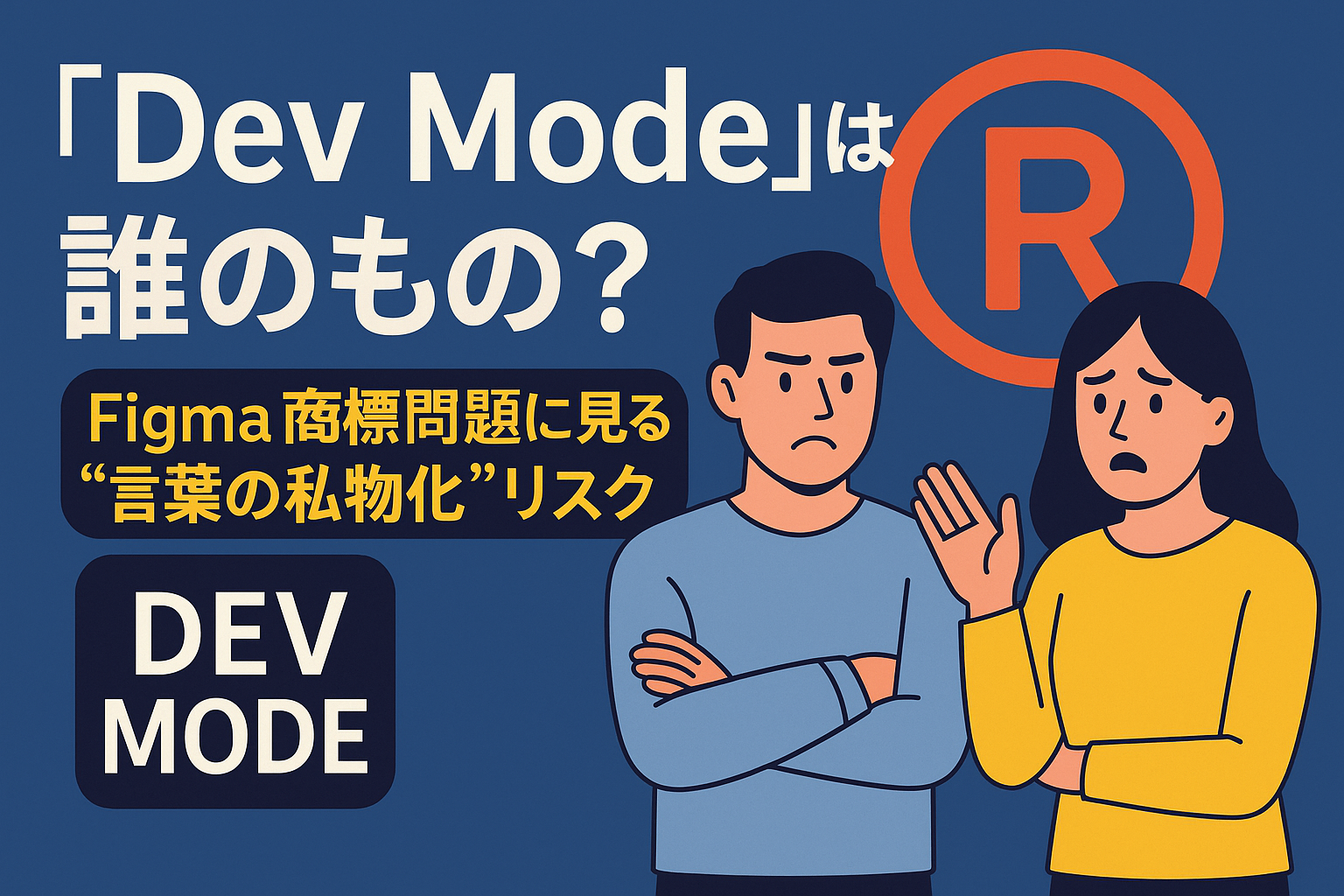In April 2024, a subtle but unsettling shock rippled through the web app development community. The Verge reported that popular design tool provider Figma had issued a cease-and-desist notice to AI development tool company Lovable, which had been using the term “Dev Mode”—a name Figma holds as a trademark.
Following this report, Reddit’s game development forum “r/gamedev” was flooded with posts expressing surprise, confusion, and outrage toward Figma. After all, “Dev Mode” (short for Development Mode) is a term that has been casually and widely used in the engineering field for years. The idea that such a common term could suddenly become someone’s legal property understandably bred mistrust among many developers.
Are Words Public Assets or Intellectual Property?
Figma’s actions may be legally justified. “Dev Mode” is indeed registered as a trademark in the United States and has confirmed international registration, including in Japan. However, the core of the issue lies elsewhere. The act of trademarking a generic technical term like “Dev Mode” has sent shockwaves through the industry.
Trademarks are, by nature, mechanisms for protecting the brands of specific products or services. But when they extend to broadly-used terms, they risk undermining the healthy growth of entire industries. If other companies are forced to avoid the term “development mode” and come up with convoluted alternatives, it may result in confusing UI labels and feature names that hinder user understanding.
Japan’s “Screengrab Trademark” Uproar: A Parallel Case
Around the same time, a similar controversy was unfolding in Japan. GMO Media’s trademark registration of the term “スクショ” (screenshot) came under heavy scrutiny. “Sukusho” has become almost as common as any everyday word, so it was no surprise that the idea of a single company monopolizing its use drew criticism.
The fact that widely-used words becoming privatized trademarks simultaneously caused a stir in both Japan and the U.S. is likely no coincidence. It may reflect a growing necessity to re-examine how trademark systems should function in the modern era.
Balancing Developer Communities and Intellectual Property
Figma, long celebrated as a cutting-edge design tool, found its innovation backfiring in this instance on the front of intellectual property. While it is understandable for companies to protect their brands, attempting to enclose commonly-used language under trademark law calls for caution.
What this issue prompts us to consider is not how we protect language, but for whom. For developers, users, and companies to coexist in a healthy ecosystem, transparency, consensus-building, and above all, common sense and open dialogue are essential.

